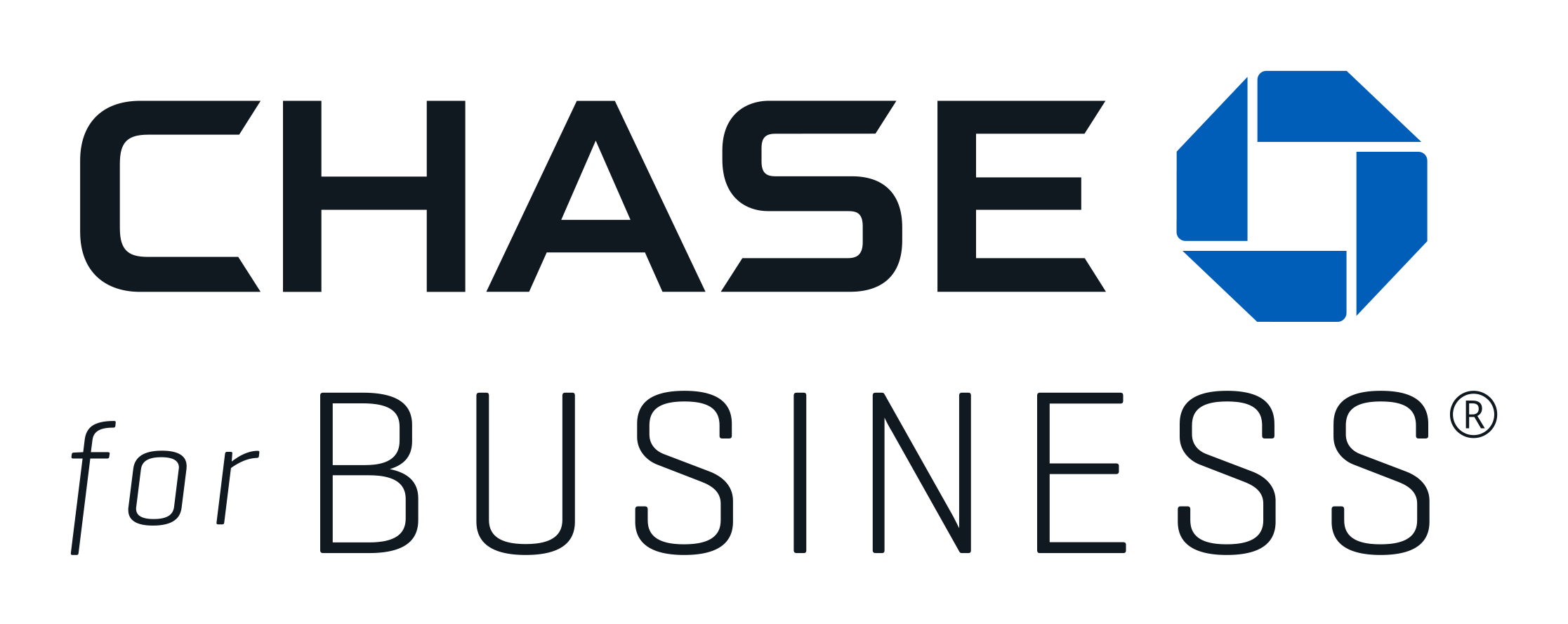U.S. Bank vs. Chase Business Checking: Which Is Better?
Compare U.S. Bank vs Chase business checking on the basis of which has lower fees for the services you want.

Many, or all, of the products featured on this page are from our advertising partners who compensate us when you take certain actions on our website or click to take an action on their website. However, this does not influence our evaluations. Our opinions are our own. Here is a list of our partners and here's how we make money.
Picking a business bank account should be more involved than simply walking into the bank closest to you and opening an account. (To be fair, the bank closest to you could be your best fit—but location shouldn’t be your only criteria.) Comparing business bank accounts is a major part of finding the best match for your business needs, which is why we’re putting U.S. Bank vs. Chase business checking head to head.
Looking at these two popular business banks close up can help you decide which of the two is a better fit for your business both now and in the long term. We’ll go through all of the features of their major business checking accounts and also clue you in on how to choose the best account for your business.
Looking for a business checking account?
See our overall favorites, or choose your business type to find the best options for you.
U.S. Bank vs. Chase business checking: Basic accounts
We’ll begin with U.S. Bank and Chase business checking’s basic accounts. These are often a fit for businesses in nascent days, or that are steady and not expecting a great deal of growth. Remember that you can always upgrade from a base-level account if you find it’s no longer right for you.
General banking services
Chase Business Complete Banking® is Chase’s base-level account. With Chase Business Complete Banking®, you’ll receive unlimited electronic deposits (like checks), up to 20 teller and paper transactions per month, and $5,000 worth of cash deposits per billing statement. There’s no minimum deposit to open the account. There’s a $15 monthly fee for this account but multiple ways you can waive the fee.
Compared to Chase, U.S. Bank’s Business Essentials (their base-level account), has no monthly fee but a $100 minimum deposit to open. Business Essentials also offers unlimited electronic deposits and withdrawals, 25 in-person transactions and/or paper checks per statement cycle and up to $2,500 in cash deposits per month.
ATM and branch access
With Chase Business Complete Banking®, you’ll get access to their network of around 15,400 ATMs and 4,900 branches across the country. Chase also provides mobile banking access with this account.
U.S. Bank’s Business Essentials account offers access to many small business tools including payment processing, plus online and mobile banking. U.S. Bank has more than 2,000 branches and around 4,700 ATMs to use.
Many major banks offer large-scale checking accounts for big businesses. You’ll find that those balance requirements are quite a bit higher, along with the fees attached. But for businesses that need the services, the requirements are worth it.
General banking services
Chase’s top-level account is called Chase Platinum Business Checking. With this account, you’ll receive 500 fee-free transactions. Additionally, business owners get unlimited electronic deposits and incoming wires. For outgoing wires, your four most expensive outgoing wires per statement cycle are covered. Finally, you’ll get $25,000 of monthly cash deposits without any additional fees.
Maintaining this account is a bit more of an expensive proposition. It’s a $95 monthly fee for the account and to waive it you’ll have to maintain a balance of $100,000.
U.S. Bank also offers a Platinum Business Checking account. With this account, you’ll get 550 free monthly transactions; going over that will only cost you $0.40 per additional transaction. You’ll get up to $20,000 in included cash deposits per month.
The biggest difference between U.S. Bank vs. Chase premium accounts is the fee. The monthly fee for U.S. Bank’s Platinum Business Checking is just $30, which is waived with a minimum balance of $25,000—quite a bit lower than what Chase requires.
Additional perks
You get business services as well as personal account discounts for each. For Chase, you may also want to know that you can get your balance requirement reduced if you are a Chase Private Client customer.
How to choose a business checking account 101
We’ll say it again: It’s important to strategically choose your business checking account. In a way, a bank is a partner for your company, especially as a small business owner. That’s because the services they provide you can make your life easier (or harder with the wrong bank), help you avoid unnecessary fees and even partner with you down the line for business loans.
Understanding what you need in a business checking account
The first thing to do is understand what it is you need in a business checking account. When comparing U.S. Bank vs. Chase business checking, it’s important to actually understand how all of those features are relevant to your business.
The easiest and most effective way to understand what you need in a business checking account is to think about the way you do business. If you’re a business that handles cash, for instance, you’ll want to think about choosing between U.S. Bank vs. Chase business checking based on which bank has branches near where you do business. If you use wire transfers often, you’ll want to look for an account that gives you a certain number of free wire transfers each month.
You’ll want to look at the way money comes and goes from your business in order to match yourself with the important features. If you’re not comfortable with this, or confident that you know your financial comings and goings well enough, you may want to consult a bookkeeper who can look at your records and give you a sense of your priorities.
The questions to ask yourself before choosing an account
Before you dive into choosing a business checking account, you’ll want to ask yourself these questions. They’ll help you more clearly see which features are right for you.
- Do I handle cash often? Will I need a brick-and-mortar branch for deposits?
- Do I need to be able to access physical branches when I travel?
- Do I wire transfer domestically? What about internationally?
- Am I able to keep a minimum balance in my account monthly? What’s the highest I can maintain?
- Am I okay with paying a fee for certain services, or is a free account my biggest priority?
- How often am I making transactions such as paying bills, employees, or vendors; receiving payments; and more?
- Are services such as small business tools important for me to be able to access?
- Do I have other accounts at that bank that could count toward combined minimum balances?
Tiered checking account options
Both U.S. Bank and Chase business checking offer tiered checking options. What that means is that they have many different levels of business checking accounts, each with different features and fees.
One important thing to know is that you’re not “supposed” to choose one tier over the other. The reason that these options exist is so you can find the best fit for you. It’s not like buying a soda, for instance, where you get a large because you might drink the whole thing or want some for later. Instead, it’s the Goldilocks approach: You want to find the account that’s just right.
U.S. Bank vs. Chase business checking: Which is right for you?
So, when looking at U.S. Bank vs. Chase business checking accounts, which is better? There may not be an objective winner—because what’s better for your business isn’t necessarily the same for another.
The best thing you can do is decide which account tier is best for your business needs (basic, mid-tier or premium), and then decide between U.S. Bank vs. Chase business checking.
And while you want to choose the best checking account for your business right off the bat, don’t stress too much. After all, a business bank account isn’t permanent and you can switch business banks if you find another option that works better.
 U.S. Bank Business Essentials Member FDIC |  Chase Business Complete Banking® Member FDIC |
|---|---|
| Learn more | Learn more |
APYN/A | APYN/A |
Bonus$400 Requirements to qualify | Bonus$500 Requirements to qualify |
This article originally appeared on Fundera, a subsidiary of NerdWallet.
Article sources
NerdWallet writers are subject matter authorities who use primary,
trustworthy sources to inform their work, including peer-reviewed
studies, government websites, academic research and interviews with
industry experts. All content is fact-checked for accuracy, timeliness
and relevance. You can learn more about NerdWallet's high
standards for journalism by reading our
editorial guidelines.
Related articles





